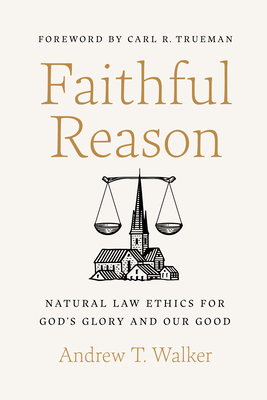
Walker, Andrew T.
product information
description
faith in the Bible, but struggle with confidence in its ethical principles. Some believe that biblical morals are not as effective as secular ideologies in promoting human well-being and societal progress. Others feel that using the Bible as a basis for moral arguments lacks persuasive power in public discussions. In Faithful Reason: Natural Law Ethics for God's Glory and Our Good, Andrew T. Walker argues that developing a comprehensive Christian ethic is not simply a matter of appealing to biblical authority, but also of understanding the way that God has ordered creation and our place within it. In this work, he provides a comprehensive and accessible introduction to natural law ethics from an evangelical perspective. In the first section of Faithful Reason, Walker develops a robust framework of natural law ethics, guided by biblical and theological evidence. In the second section, this framework is applied to various contemporary ethical issues within dignity ethics, embodied ethics, personal ethics, social ethics, and political ethics. Through a natural law framework, readers are empowered to reason through the particulars of any situation and develop a godly ethical response.
member goods
No member items were found under this heading.
Return Policy
All sales are final
Shipping
No special shipping considerations available.
Shipping fees determined at checkout.







